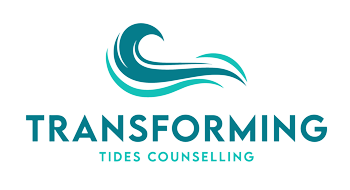Are you finding yourself overwhelmed with the piles of clothes at the back of your closet, the stacks of paper on your desk, the plastic containers spilling out of your cupboards?
Many say clutter links with anxious moments – I sure know that it puts my teeth on edge. It’s true that when I walk in the kitchen and see papers scattered on the table, dishes, packages, and crumbs on the counter…I feel disconnected and irritated. I want to immediately start cleaning things up, and often I have to bite my tongue from complaining to my partner and ranting about clutter. Can you relate?
My partner and I are on different ends of the spectrum when it comes to reacting to clutter. He can work comfortably at his desk where there are piles of papers, notebooks, packages of stationary – you name it – scattered around his work surface. He seems to focus on the task at hand without paying any mind to the buried surface on his desk and the scattered papers beside his computer. He says that having notebooks piled around and small ornaments that were given to him by people near and dear bring him comfort and a feeling of connection.
As for me, I work best at my desk when the surface is cleared of scattered papers, notebooks, and mail. I like one or two key ornaments on a corner of the desk for inspiration, and everything else needs to be clear. I would say my mind reacts to chaos. When the clutter of chaos is around me in my office, it’s as if the chaos outside comes inside my mind, and I can’t focus, no matter how hard I try. I feel jumpy and anxious, and I find myself so distracted I feel like I’m getting nothing done.
I’m even sensitive to the clutter on my computer screen when I’m trying to be productive. I know that if I have tons of tabs open on my computer screen at any one time, I’m going to be scrolling from website to website and feeling scattered. Same goes for apps and files. If I’m to be productive I need to close down my unused tabs and apps, take a breath, and then focus solely on the one doc at a time.
Not so for my partner. He can work away on a doc on his computer without paying any mind to the tons of open tabs or the apps and files hovering open around his screen. He seems to have an ability to block out these other attractions without them causing him distraction, something I just can’t relate to.
How Does Clutter Affect You?
How we react to clutter is for sure a personal preference. It can be different for everyone. Some, like me, love cleared surfaces and feel energized and focused by an open workspace. Others like to have their stacks of books and papers around, which seem to give them comfort in knowing they have lots of things if those things are ever needed. Having items for that “just in case” preparation can bring feelings of security. The important thing is to find out what works best for you, and how you can put in place what you need in your environment to best support your inner state.
Here are some tips for deciding if you are affected by clutter:
- Step into a room where there is lots of clutter. Take a breath and notice how your body is feeling. Notice if you are holding tension in your body – perhaps in your jaw or your stomach. Pay attention to your breathing and heart rate – is your heart beating quietly or is it beating fast?
- Notice your mood, and if you are feeling calm, energized or irritated and on edge.
- Take a minute to notice what thoughts are going through your mind. Are you thinking thoughts like “I can’t stand this”. “I have to clean all this up before I can do anything”. “This is such a mess”.
- If you are trying to be productive in a cluttered room, notice how long it takes you to get your tasks done. Are you procrastinating and wasting time? Are you getting right to the task and feeling productive?
If you decide that you are immune to clutter and can live around it feeling completely unbothered, hooray, you’re one of the lucky ones. If you find yourself like me, and notice irritation when you’re around clutter, read on.
It’s time to Declutter for your self-care
Decluttering is the name of the game when it comes to supporting productivity, building energy and doing self-care for those of us bothered by clutter. Decluttering with the change of the seasons is a good time to turn attention to your self-care and boost your self-esteem by doing what matters toward feeling calm and grounded. Taking the time to sort, file, give away, and recycle all those piles of clutter is the first step to getting the environment in which you live, and work set up for a calm and productive experience.
Decluttering involves three key steps: 1) deciding what to get rid of, 2) negotiating and getting agreement from your partner or family members if any items belong to them, 3) planning what to do with all the items you no longer need.
Step 1: Many people I talk to share how they feel bothered by clutter, but they have a hard time getting rid of things. They say they feel attached to ornaments and clothes, and they can’t part with them. If this is the case for you, try the advice given by Marie Kondo, the author of “The Life-Changing Magic of Tidying Up: The Japanese Art of Decluttering and Organizing” and ask yourself if the item brings you joy. Testing out if you find joy in using the item or having it around in your room is a way to decide if this item has meaning for you, or if it can bring joy and meaning to someone else who may enjoy having it. Asking yourself if you’ve used the item in the last few years, or if you are likely to use it anytime soon, is another way to decide if the stuff stays or goes.
Step 2: Decluttering involves negotiating with yourself and with those you live with. Asking yourself “Is my self-esteem wrapped up in owning stuff and having lots of items around my home?” is a way to reflect on where you draw your sense of inner meaning from. Knowing that you are okay without personal items defining who you are is a process that helps you open up and allow yourself to declutter. Taking time to also talk with your partner and family members to get their agreement on getting rid of items is necessary to give away stuff. Ask them how they feel about items you may want to get rid of. Making sure everyone is in agreement makes sure the decluttering goes smoothly.
Step 3: Deciding what to do with the items you want to get rid of can be daunting. Reducing waste is an important consideration when it comes to decluttering, especially if you’re like me and value reducing garbage in our landfills. My ‘go to’ is to recycle where possible, and give away as much of the stuff as I think someone else may be able to use. I scope out second hand stores and charities that take kitchen items and clothes to then share with others. Most communities have bins that take clothing and household items where you can do drop offs.
Focusing on your self-care by decluttering is a real way to be true to yourself. Creating the environment around your home that helps you feel calm, grounded and peaceful is an important part of supporting your inner state of being. Your inner self will thank you for the effort you put into decluttering.
If you are feeling overwhelmed and anxious about tasks that support your self-care, please reach out. The team at Transforming Tides Counselling offers a free 20-minute phone consultation to discuss your needs and answer your questions about counselling with us. It’s important to feel comfortable with your therapist. Let’s find out if we’re a good fit. Book your free phone consultation here.




